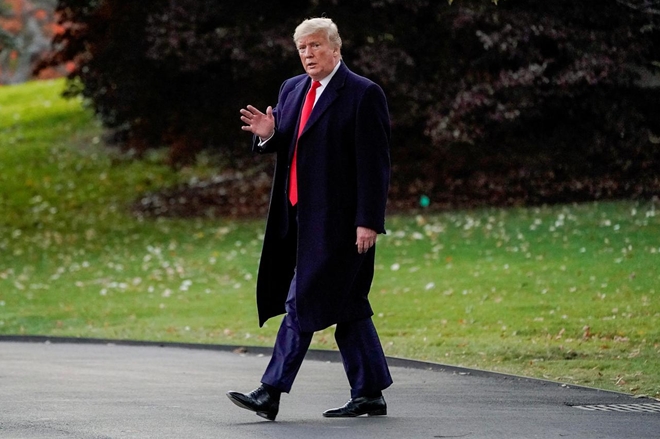Trump asks Japan to hike payments for U.S. troops to $8 billion: Foreign Policy
 |
|
FILE PHOTO: U.S. President Donald Trump departs for campaign travel to Louisiana from the South Lawn of the White House in Washington, U.S., November 14, 2019. REUTERS/Jonathan Ernst |
The current agreement that covers the 54,000 U.S. troops stationed in Japan expires in March 2021.
The demand was made to Japanese officials during a trip to the region in July by John Bolton, at that time Trump’s national security adviser, and Matt Pottinger, who was then the Asia director for the National Security Council, the U.S. global affairs magazine said, citing unidentified former U.S. officials.
A Japanese foreign ministry spokesman said the report was incorrect and no U.S.-Japan negotiations on a new agreement have taken place.
According to Kyodo news agency, Japanese officials told Bolton the increase is “unrealistic”, saying Japan already pays a greater share of stationing costs than other allies.
A U.S. State Department spokesman said in an emailed statement: “The President has made clear that allies and partners should contribute more to their shared defense.”
Negotiations to renew the agreement will start in the first half of next year, the spokesman said, adding that the U.S. commitment to Japan’s defense was “unwavering”.
Japan hosts the U.S. Navy’s Seventh Fleet, including the only permanently forward deployed carrier strike group, as well as the Third Marine Expeditionary Force.
In addition to defending Japan, those units use the archipelago as a base for operations in the wider Asia-Pacific region where U.S. military power acts as a counterbalance to China’s growing influence.
Trump has also insisted Seoul shoulder more of the cost of the U.S. military presence in South Korea, where it serves as deterrence against North Korea, and has floated the idea of pulling U.S. troops from the peninsula.

